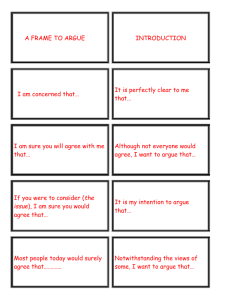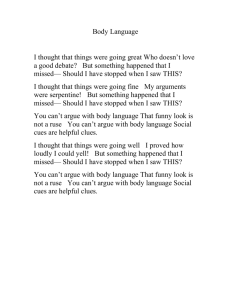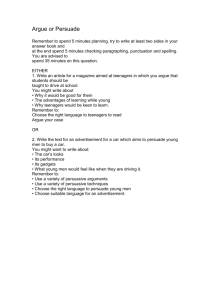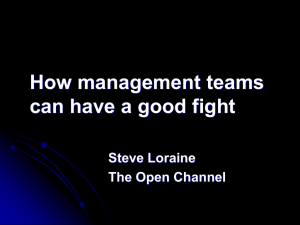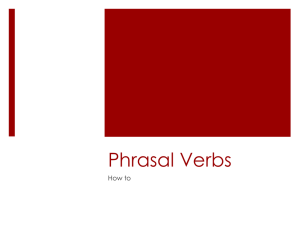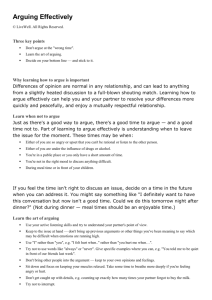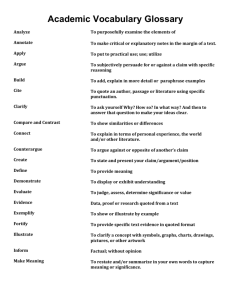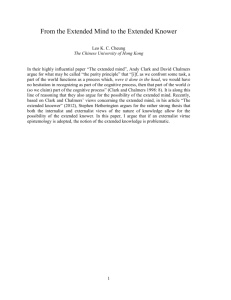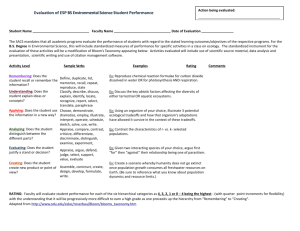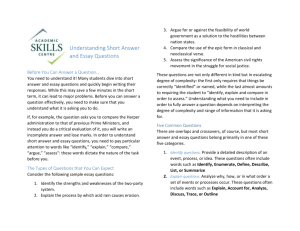Sweeney`s Wonderful World of Wisdom Learning and Knowledge
advertisement
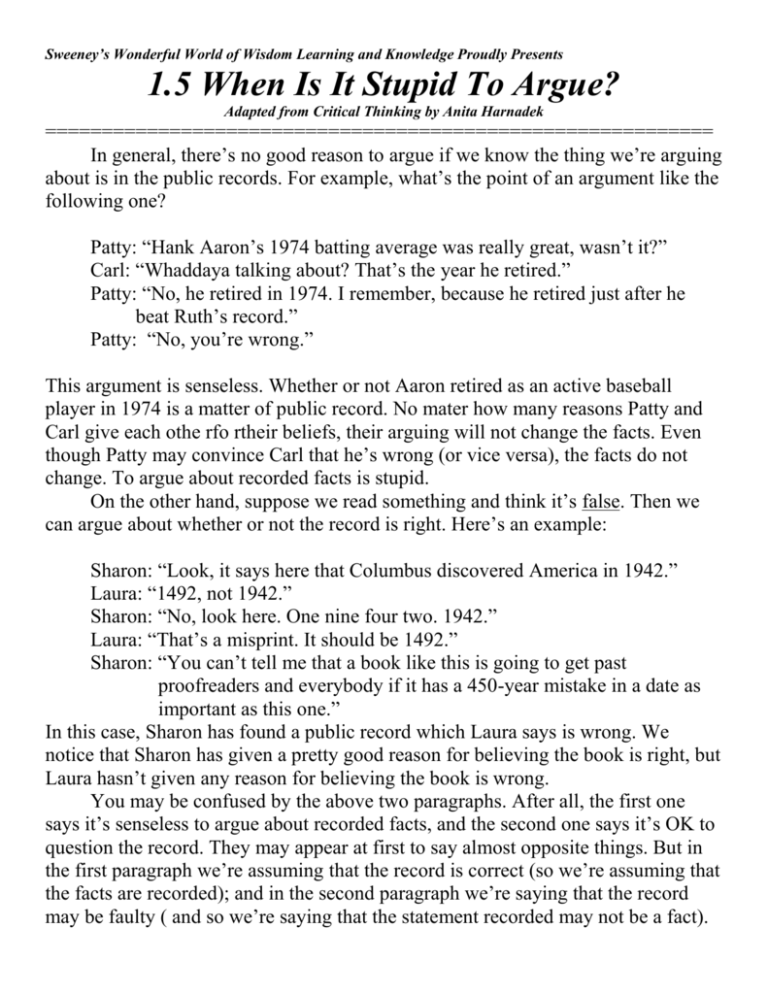
Sweeney’s Wonderful World of Wisdom Learning and Knowledge Proudly Presents 1.5 When Is It Stupid To Argue? Adapted from Critical Thinking by Anita Harnadek =========================================================== In general, there’s no good reason to argue if we know the thing we’re arguing about is in the public records. For example, what’s the point of an argument like the following one? Patty: “Hank Aaron’s 1974 batting average was really great, wasn’t it?” Carl: “Whaddaya talking about? That’s the year he retired.” Patty: “No, he retired in 1974. I remember, because he retired just after he beat Ruth’s record.” Patty: “No, you’re wrong.” This argument is senseless. Whether or not Aaron retired as an active baseball player in 1974 is a matter of public record. No mater how many reasons Patty and Carl give each othe rfo rtheir beliefs, their arguing will not change the facts. Even though Patty may convince Carl that he’s wrong (or vice versa), the facts do not change. To argue about recorded facts is stupid. On the other hand, suppose we read something and think it’s false. Then we can argue about whether or not the record is right. Here’s an example: Sharon: “Look, it says here that Columbus discovered America in 1942.” Laura: “1492, not 1942.” Sharon: “No, look here. One nine four two. 1942.” Laura: “That’s a misprint. It should be 1492.” Sharon: “You can’t tell me that a book like this is going to get past proofreaders and everybody if it has a 450-year mistake in a date as important as this one.” In this case, Sharon has found a public record which Laura says is wrong. We notice that Sharon has given a pretty good reason for believing the book is right, but Laura hasn’t given any reason for believing the book is wrong. You may be confused by the above two paragraphs. After all, the first one says it’s senseless to argue about recorded facts, and the second one says it’s OK to question the record. They may appear at first to say almost opposite things. But in the first paragraph we’re assuming that the record is correct (so we’re assuming that the facts are recorded); and in the second paragraph we’re saying that the record may be faulty ( and so we’re saying that the statement recorded may not be a fact). In other words, if we agree that the answer is recorded somemwere and that the record is correct, then it’s stupid to argue abou the answer. But if we think the record may be wrong, then we can argue about whether or not the record really is wrong. We can use the flow chart on the next page to help us decide whether or not it’s OK to argue about something. (To read a flow chart, just follow the arrows.) Notice that the first question asks, “is the answer recorded as fact somewhere?” In other words, if the answer is recorded somewhere simply as someone’s opinion, then that record doesn’t count for now. We want to know if the answer is recorded as a fact somewhere. When We Disagree, Is It Stupid To Argue, Or Not? START The matter is settled. Don’t argue about the answer. yes Is the answer recorded as fact somewhere ? don’t know Do we agree that this record is accurate ? yes no yes no Do we agree that this record is faulty? yes no no Try to find out. Argue about the record’s accuracy, not about the answer to the original question Did you find out? yes no Go ahead and argue about the answer. Do we agree on whether or not this record is accurate? yes Is another factual record available ? no Don’t know
